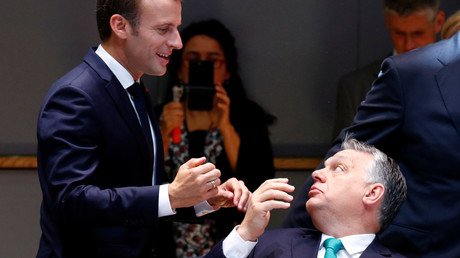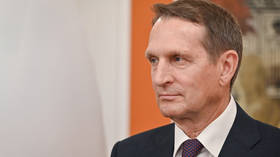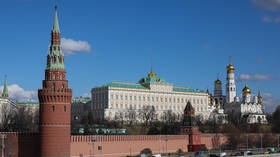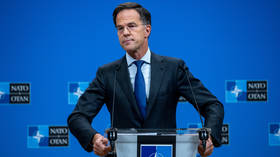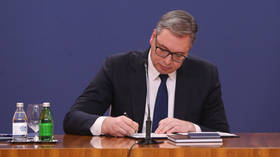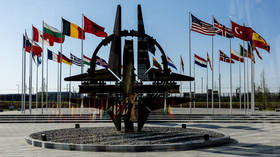‘Brussels only understands language of money, not values’ – Italian Deputy PM Salvini to RT
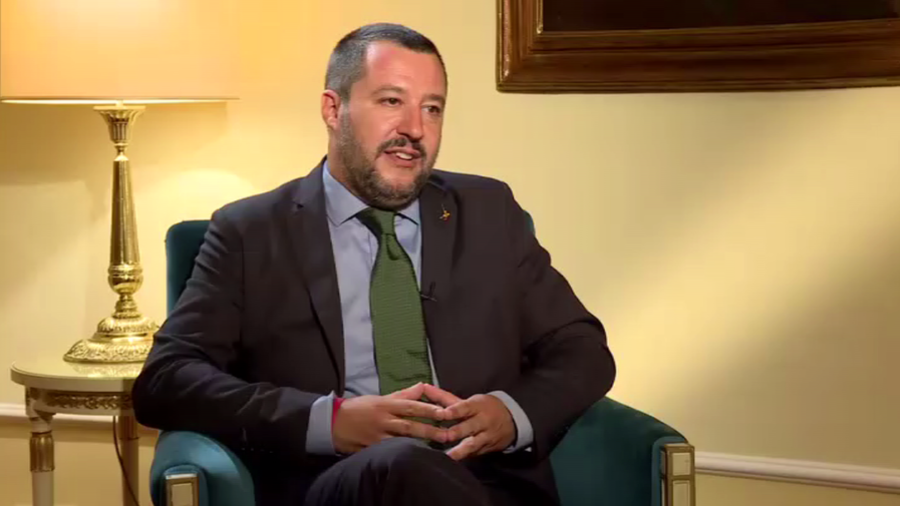
EU bureaucrats are not interested in values and principles, Italian Deputy Prime Minister Matteo Salvini told RT. He also said nations like France take a hypocritical stance when they bash Italy’s migration policy.
Italy will not vote for the EU’s next seven-year budget if there is not an agreement on other crucial issues, like migration, Salvini, who also serves as Italy’s interior minister, told RT’s Sophie Shevardnadze in an exclusive interview at the sidelines of the European House - Ambrosetti Forum in Italy.
“Unfortunately in Brussels and in Europe they only understand the language of money. Therefore they are not talking about principles, values, solidarity – but economic issues.”
The Italian government has received flak for championing stronger border control and blocking migrant ships from entering its ports. Last month, a charity NGO-run ship called the Aquarius, carrying more than 600 migrants from Africa, was rejected by Italy and had to dock in Spain instead.
Italy’s decision was slammed by French President Emmanuel Macron, who said Italy doesn’t have “the same migratory pressure” as last year. Salvini fired back, hinting at hypocrisy.
“Other European countries – like France – close their borders and send back 50,000 people, and then try to lecture us,” he said, adding that NGO-operated ‘rescue ships’ exacerbate the crisis. “There are some international missions that have brought tens of thousands of migrants to Italy alone.”
Rome’s position prompted some EU officials and politicians to label Italy as dangerous. The EU Budget Commissioner Gunther Oettinger said last week that governments like the one in Italy want to “weaken or even destroy” the European project.
The Italian deputy prime minister dismisses such claims and says that, despite the harsh criticism of the EU migration policy, he doesn’t agree that his country is ruled by an ‘anti-EU’ government.
“I am not against Europe. I am in favor of a Europe that does few things, but does them well – leaving freedom of choice on other fronts for individual states.”
Italy was one of the countries hit hardest when the migration crisis erupted in 2014. Thousands of Africans arrived in the country after crossing the Mediterranean and Rome felt abandoned by its European partners. “This Europe is not showing solidarity” and Italy is left to deal with migration flows “all by itself,” Prime Minister Giuseppe Conte complained in June.
In response, the European Commission had offered to pay Italy €6,000 for each admitted migrant – an idea Rome flatly rejected. “Italy doesn’t need charity,” Salvini said at the time.
Tensions between the Italian government and Brussels reached boiling point during the EU summit in late June when Rome threatened not to endorse proposals on trade and security if the partners refused to help Italy tackle the migration problem. After exhausting nine-hour talks, EU officials agreed that states should admit migrants on a voluntary basis and establish “controlled centers” to process them. Italy welcomed the solution, with Prime Minister Conte saying that Italy “is not alone anymore.”
Aside from migration policy, Italy has significant qualms with Brussels about trade, austerity and anti-Russian sanctions. The government had called for easing the restrictions imposed on Moscow in a bid to boost a political dialogue.
Like this story? Share it with a friend!
